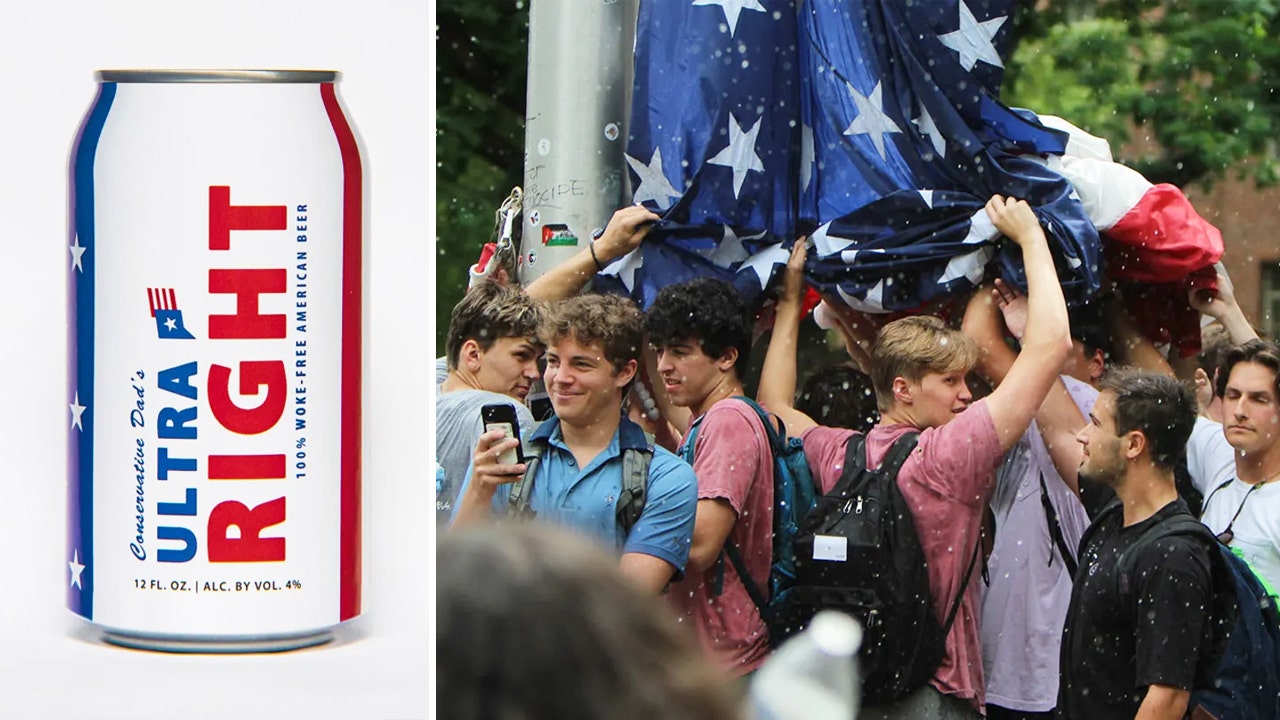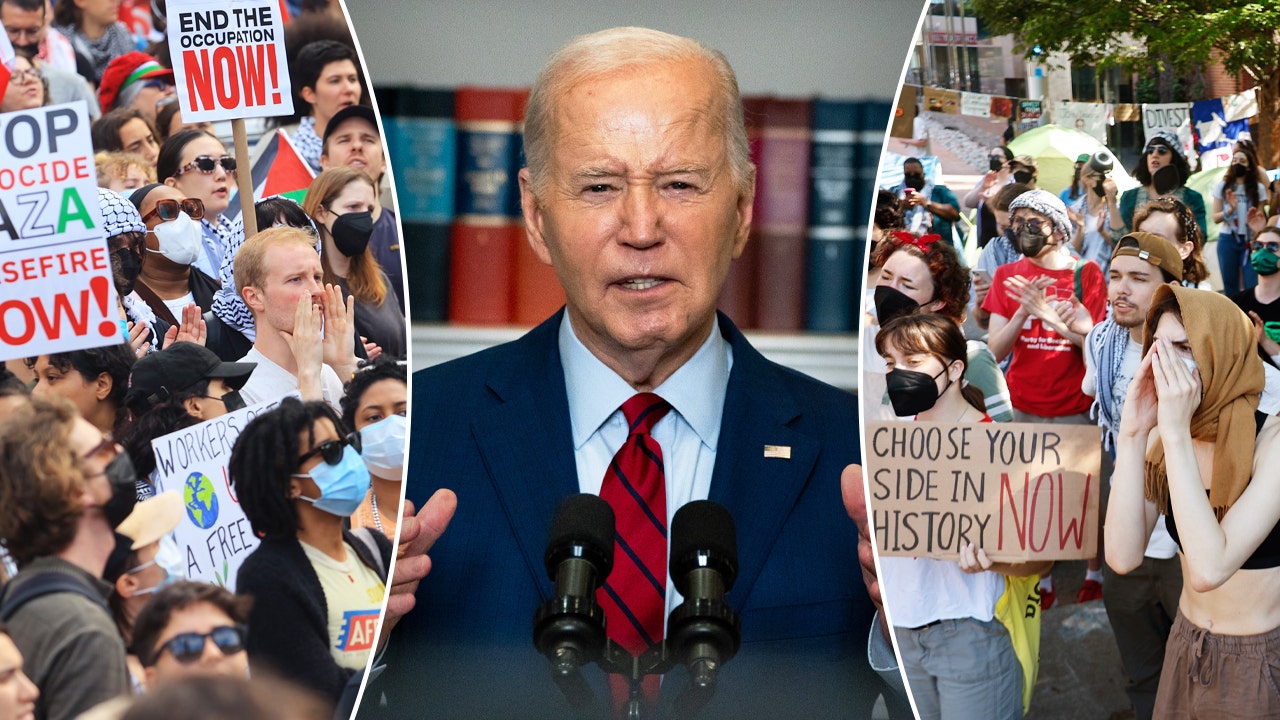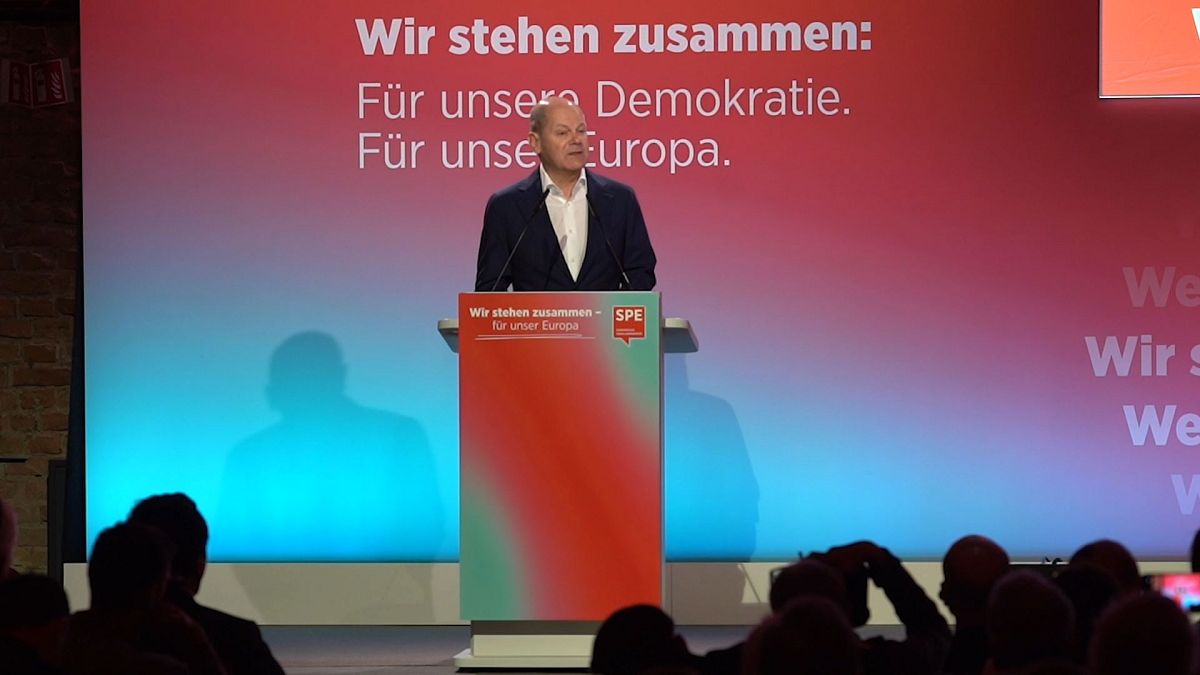World
Divisive Thai ex-Prime Minister Thaksin returns from exile as party seeks to form new government
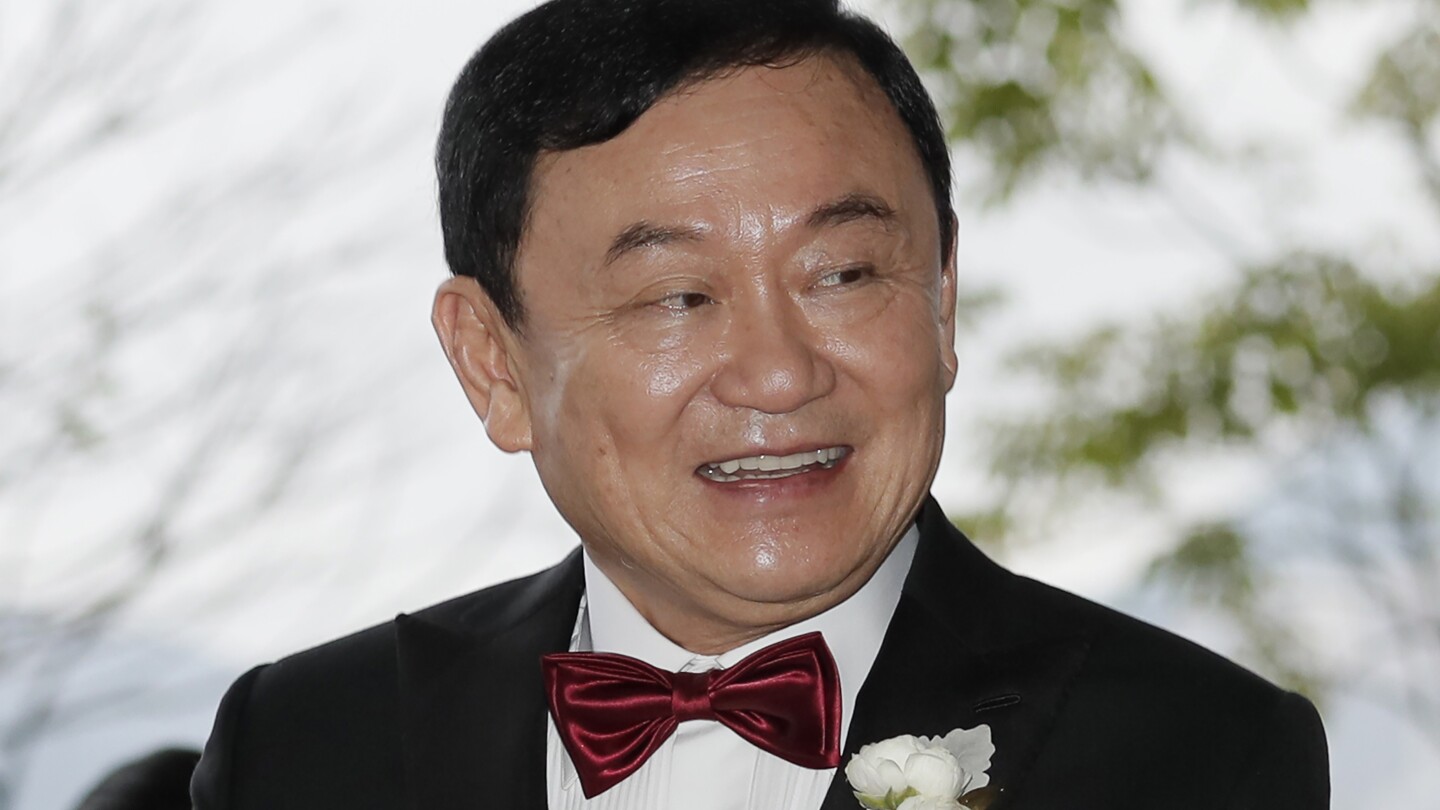
BANGKOK (AP) — Divisive ex-Prime Minister Thaksin Shinawatra returned to Thailand on Tuesday after years of self-imposed exile to face criminal charges on the same day that a party affiliated with him plans to start forming a new government.
Thaksin has said his decision to return has nothing to do with an expected vote in Parliament later in the day on a candidate from the Pheu Thai party for prime minister. But many believe his arrival is connected to the party’s pursuit of power.
Thaksin flew from Singapore in his private jet and landed at Don Mueang International Airport around 9 a.m. local time. Thai broadcasters aired live footage of him walking out of the airport’s private jet terminal with his daughter, key Pheu Thai member Paetongtarn Shinawatra, and greeting his supporters.
After walking out, Thaksin placed a flower wreath and prostrated before a portrait of Thailand’s king and queen at the gate of the terminal.
Supporters of him gathered outside of the airport hours ahead of his arrival, donning red and holding sign with welcoming messages. Core members of the Pheu Thai party were also seen at the airport.
The 74-year-old billionaire promoted populist policies and used his telecommunications fortune to build his own Thai Rak Thai party and be elected prime minister in 2001 and easily reelected in 2005, before being ousted in a military coup in 2006 and fleeing into exile.
Thaksin was convicted in absentia in several criminal cases that he said were politically motivated, and he could face prison time unless he receives a royal pardon.
Pheu Thai is the latest in a string of parties affiliated with Thaksin. The military coup that ousted him triggered years of upheaval and division that pitted a mostly poor, rural majority in the north that supports Thaksin against royalists, the military and their urban backers.
In an interview with BBC Thai on Saturday, Thaksin said his return was planned before the date of the parliamentary vote was set, and that he was prepared to follow the Thai legal process.
Less than a week before May elections, Thaksin announced he would like to return before his birthday in July, but the plan was repeatedly delayed, with he and Paetongtarn citing both post-election uncertainties and his health.
Pheu Thai came in second in the elections but took over leadership in forming a new government after the surprise winner, the progressive Move Forward Party, was repeatedly rejected by conservative senators appointed by a previous military government.
Move Forward’s reform agenda appealed deeply to many Thais, particularly younger voters who were disenchanted by 17 years of military-backed rule, but was seen as a threat by the country’s conservative elites.
After more than three months without a new government, Parliament plans to vote Tuesday afternoon on Pheu Thai’s candidate for prime minister, former property developer Srettha Thavisin, after it formed an 11-party coalition including two parties allied with its former military adversaries. Pheu Thai has been heavily criticized by some of its supporters for backtracking on a pre-election pledge not to join hands with pro-military parties.
Pheu Thai officials have defended the decision by saying it was necessary to break the political deadlock and seek reconciliation after decades of deep political divisions.
“Although there are parties from the outgoing government in the coalition, all parties will work with Pheu Thai with efficiency and serve the best interests of the public,” Pheu Thai leader Chonlanan Srikaew said Monday. “The coalition parties will use this chance as a beginning to build love, harmony and reconciliation of the people in the country, and will work together to create prosperity for the country and the people into the future.”
The Pheu Thai-led coalition holds 314 seats in the 500-member House of Representatives and needs some support from the non-elected Senate, appointed by a previous military government, to achieve a majority in the combined parliamentary vote.
Both houses of Parliament vote together for the prime minister under the military-implemented constitution, in an arrangement designed to protect conservative military-backed rule. Senators, like the army, see themselves as guardians of traditional conservative royalist values.
Thaksin came back briefly to Thailand in 2008 to face a court trial before fleeing the country. He has avoided returning over concerns he would not be treated fairly by the military-backed government and establishment that has long held a sharp animosity toward him.
He has remained active in Thai politics, however, often making video calls to political rallies of parties backed by him.
“Thaksin’s plans to return to Thailand were postponed after the election results were announced — this implies a strong connection between the election, formation of coalitions, and selection of the prime minister on one hand, and Thaksin’s personal agenda on the other,” said Napon Jatusripitak, a political science researcher and visiting fellow at Singapore’s ISEAS-Yusof Ishak Institute.
“Thaksin has managed to make this election about himself personally, and the direction of a Pheu Thai-led coalition heavily depends on his personal whims.”
With the convictions against him, Thaksin could face more than a decade in prison, though Deputy Prime Minister Wissanu Krea-ngam of the outgoing military-linked government said earlier that Thaksin is eligible to request a pardon and could receive special treatment because of his age.
Napon said Thaksin’s decision to return now suggests that “he has received assurances that he will not have to serve a prison sentence in full.”

World
Trump, RNC Raise Over $76 Million in April, Half From Small Donors
World
North Korea propaganda song praising Kim Jong Un goes viral on TikTok

A song that praises North Korean dictator Kim Jong Un has gone viral on TikTok.
“Let’s sing Kim Jong Un, the great leader,” the song called “Friendly Father” says, according to BBC News. “Let’s brag about Kim Jong Un, our friendly father.”
“Is this a single or where can I get the whole album,” one TikToker joked. Another said, “It’s so dystopian in the catchiest way.”
“I don’t really like Kim Jong Un but he was really cooking on this song,” another said.
KIM JONG-UN PROMISES ‘DEATH BLOW’ TO POTENTIAL ENEMIES, IGNORES BIDEN’S REQUEST FOR COOPERATION
North Korea’s new song about Kim Jong Un, “Friendly Father,” has gone viral on TikTok. (API/Gamma-Rapho via Getty Images)
South Korean pop, or K-pop, and Western music are banned inside North Korea, and some defectors have cited illegally listening to outside music as a factor in their decision to defect.
“When you listen to North Korean music, you have no emotions,” North Korean defector Ryu Hee-Jin told The Washington Post in 2019. “But when you listen to American or South Korean music, it literally gives you the chills. The lyrics are so fresh, so relatable. When kids listen to this music, their facial expressions just change.”
NORTH KOREA’S KIM PUTS WEST ON NOTICE BY OPERATING ‘WORLD’S MOST POWERFUL’ TANK DURING LIVE FIRE EXERCISES
Of “Friendly Father,” Peter Moody, a North Korea expert at Korea University, told BBC News, “The song has Abba written all over it. It’s upbeat, it could not be more catchy and a rich set of orchestral-sounding sequences could not be more prominent.”
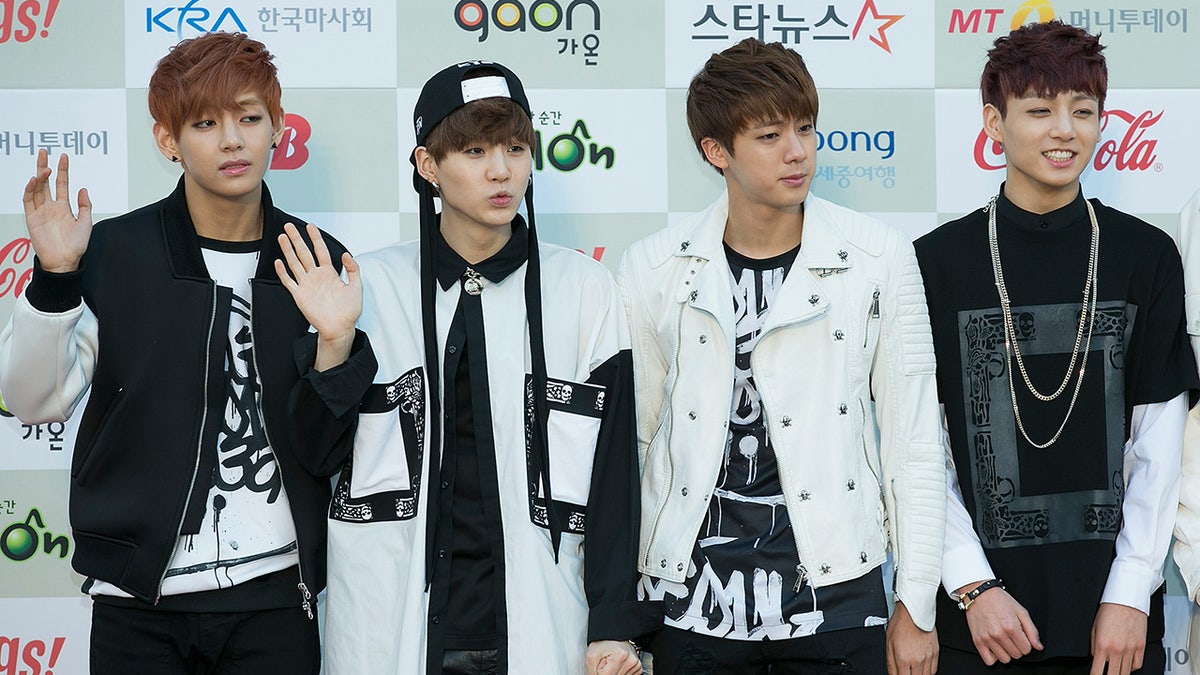
Some North Korean defectors have cited listening to K-pop music like the group BTS as helping them decide to defect. (Han Myung-Gu/WireImage)
Alexandra Leonzini of Cambridge University told the outlet North Korean authorities would have sought to make an “earworm” song with simple lyrics that’s easy to sing.
“All artistic output in North Korea must serve the class education of citizens and more specifically educate them as to why they should feel a sense of gratitude, a sense of loyalty to the party,” she said.
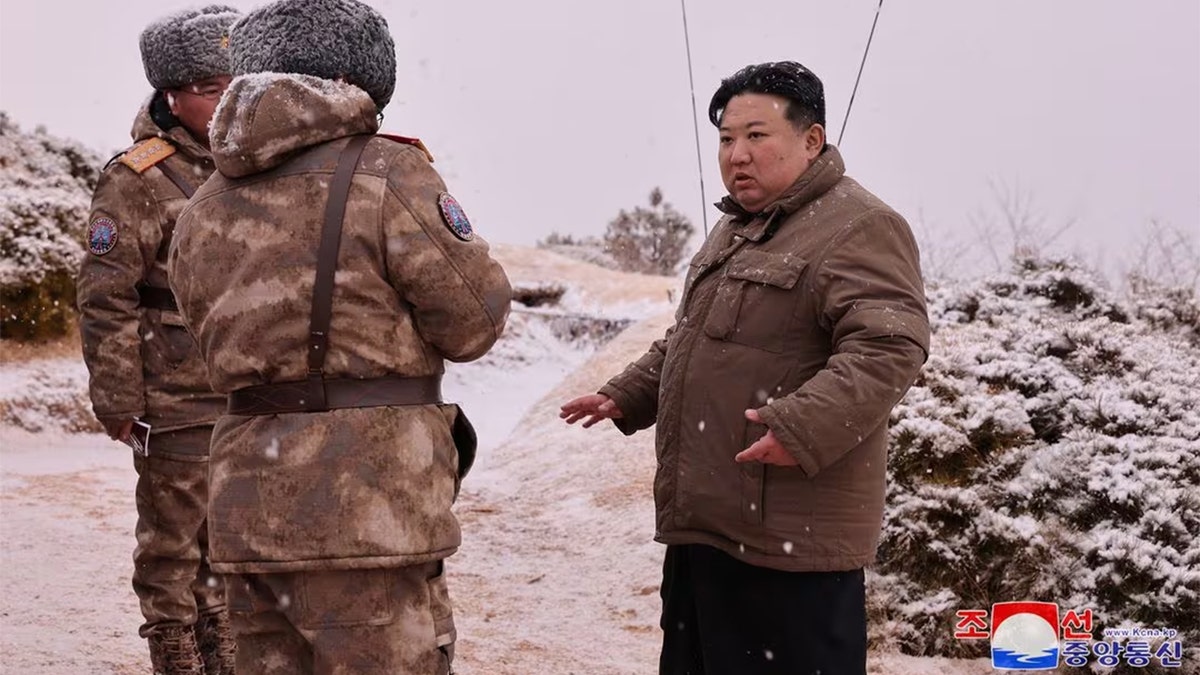
Defectors have said the government plays propaganda songs every morning throughout the country, citizens are taught choreographed dances to the songs and the lyrics are printed in newspapers. (KCNA via REUTERS)
Defectors have said the government plays propaganda songs every morning throughout the country, citizens are taught choreographed dances to the songs and the lyrics are printed in newspapers.
“By the time the song has sort of been taken into the body, it’s become part of the person,” Keith Howard, a professor at the London School of African and Oriental Studies, said. “So, they know the lyrics so well, even if they’re just doing the actions, even if they’re just listening to it. A good ideological song does that. It needs to embed the message.”
World
Spain and Argentina trade jibes in row before visit by President Milei

The spat began when Spain’s transport minister said Argentina’s Javier Milei took drugs during last year’s election.
Spain and Argentina have their diplomatic daggers drawn and have traded jibes over drug use and economic decline.
The spat began on Friday when Spanish Transport Minister Oscar Puente, during a panel discussion in Salamanca, suggested that Argentina’s President Javier Milei had ingested “substances” during last year’s election campaign.
“I saw Milei on television” during the campaign, Puente told a Socialist Party conference.
“I don’t know if it was before or after the consumption … of substances.”
He also listed Milei among some “very bad people” who have reached high office.
Milei’s office responded on Saturday in a statement condemning the remarks and also attacking Spanish Prime Minister Pedro Sanchez.
The statement accused Sanchez of “endangering Spanish women by allowing illegal immigration” and undermining Spain’s integrity by making deals with separatists, while his left-wing policies brought “death and poverty”.
— Oficina del Presidente (@OPRArgentina) May 3, 2024
Spain reacted with fury.
“The Spanish government categorically rejects the unfounded words … which do not reflect the relations between the two countries and their fraternal people,” the Spanish foreign ministry said.
“The government and the Spanish people will continue to maintain and strengthen their fraternal links and their relations of friendship and collaboration with the Argentine people, a desire shared by all of Spanish society,” the statement added.
The spat comes two weeks before a visit to Spain by Argentina’s “anarcho-capitalist” president.
Milei will attend an event of the far-right Vox party and will be avoiding meeting Spain’s socialist head of government, Sanchez.
The two have never had good relations.
Sanchez supported Milei’s rival Sergio Massa in the election that brought Milei to power in December and has also not contacted Milei since the victory.
Milei has meanwhile publicly supported Spain’s far-right anti-immigration Vox party. Vox leader Santiago Abascal also went to Buenos Aires for Milei’s investiture.
-

 News1 week ago
News1 week agoFirst cargo ship passes through new channel since Baltimore bridge collapse
-

 World1 week ago
World1 week agoHaiti Prime Minister Ariel Henry resigns, transitional council takes power
-

 World1 week ago
World1 week agoSpanish PM Pedro Sanchez suspends public duties to 'reflect'
-

 News1 week ago
News1 week agoAmerican Airlines passenger alleges discrimination over use of first-class restroom
-

 Movie Reviews1 week ago
Movie Reviews1 week agoAbigail Movie Review: When pirouettes turn perilous
-

 World1 week ago
World1 week agoEU Parliament leaders recall term's highs and lows at last sitting
-

 Science1 week ago
Science1 week agoMosquito season is upon us. So why are Southern California officials releasing more of them?
-
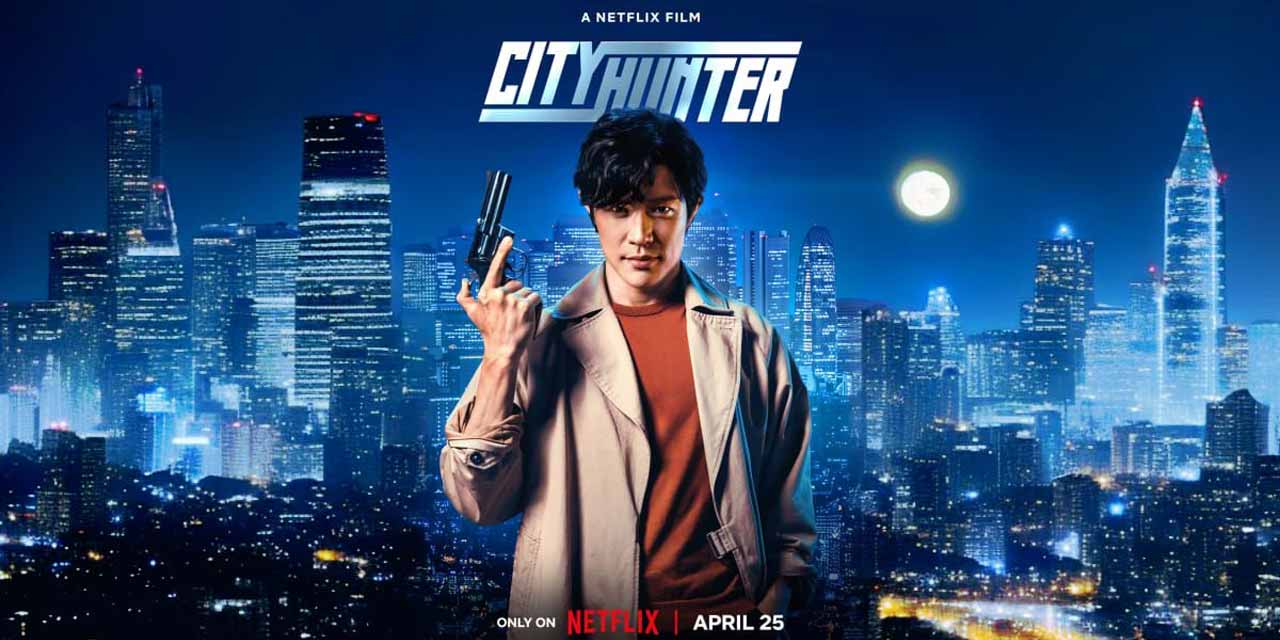
 Movie Reviews1 week ago
Movie Reviews1 week agoCity Hunter (2024) – Movie Review | Japanese Netflix genre-mix Heaven of Horror













